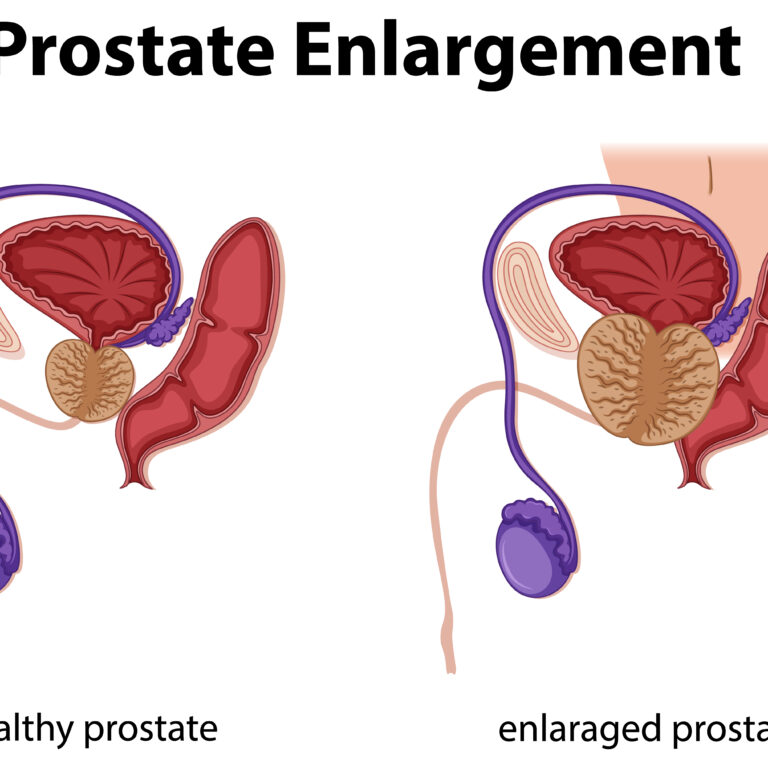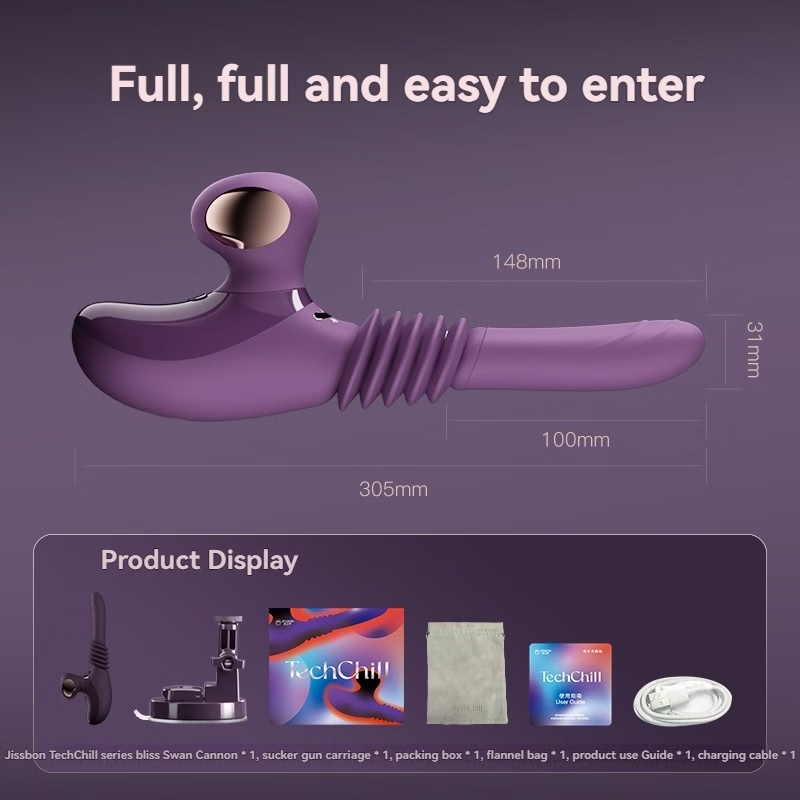Sacred Connections: The Intersection of Spirituality and Intimacy in Gay Relationships

Key Takeaways-Sacred Connections: The Intersection of Spirituality and Intimacy in Gay Relationships
- Spirituality plays a significant role in enhancing intimacy and emotional bonds in gay relationships.
- Effective communication about spiritual beliefs and practices can deepen mutual understanding and connection.
- Integrating spiritual practices, such as meditation and mindfulness, can foster a more profound intimate relationship.
- Addressing and reconciling differing spiritual perspectives is essential for maintaining harmony and intimacy.
- Utilizing resources and products from sextoyforyou.store can support and enhance intimate connections within the spiritual framework of gay relationships.
Table of Contents
- Introduction
- Defining Spirituality and Intimacy
- The Importance of Spirituality in Gay Relationships
- Challenges at the Intersection of Spirituality and Intimacy
- Strategies for Harmonizing Spirituality and Intimacy
- Case Studies
- Comparison of Spiritual and Intimacy Practices
- Conclusion
- Frequently Asked Questions (FAQs)
- References
Introduction
In the intricate tapestry of relationships, spirituality and intimacy are threads that intertwine to create a profound and meaningful connection between partners. For gay men, navigating the intersection of spirituality and intimacy can be both enriching and challenging, influenced by unique societal dynamics, personal beliefs, and the evolving nature of their relationships.
Spirituality, encompassing a sense of connection to something greater than oneself, can significantly enhance the depth and resilience of a relationship. Intimacy, the emotional and physical closeness shared between partners, thrives when nurtured by a shared or respected spiritual understanding.
This comprehensive guide explores the sacred connections between spirituality and intimacy in gay relationships, offering insights, strategies, and practical tools to help couples cultivate a harmonious and spiritually enriched intimate life. Whether you are seeking to deepen your emotional bond, integrate spiritual practices into your relationship, or overcome challenges at the intersection of spirituality and intimacy, this guide provides the knowledge and resources to support your journey.
Defining Spirituality and Intimacy
What is Spirituality?
Spirituality is a broad and multifaceted concept that involves a sense of connection to something greater than oneself. It encompasses beliefs, practices, and experiences that provide individuals with a sense of purpose, meaning, and understanding of the universe and their place within it.
Spirituality can manifest in various forms, including religious practices, meditation, mindfulness, nature worship, and personal reflection. It is a deeply personal and subjective experience, differing significantly from person to person.
In the context of relationships, spirituality can influence values, behaviors, and the way partners connect and support each other. It provides a framework for mutual understanding, shared goals, and a deeper emotional connection.
What is Intimacy?
Intimacy in relationships refers to the emotional and physical closeness that partners share. It involves the ability to share personal thoughts, feelings, and experiences, fostering a deep sense of trust and connection. Intimacy is not limited to physical affection but also includes emotional support, mutual respect, and open communication.
There are different types of intimacy, including emotional intimacy, intellectual intimacy, and sexual intimacy. Emotional intimacy involves sharing feelings and emotional experiences, while intellectual intimacy relates to sharing ideas and thoughts. Sexual intimacy encompasses the physical connection and sexual activities shared between partners.
In gay relationships, as in all relationships, maintaining and enhancing intimacy is essential for sustaining a fulfilling and resilient partnership. When combined with spirituality, intimacy can reach new depths, providing a more profound and holistic connection.

The Importance of Spirituality in Gay Relationships
Enhancing Emotional Bonds
Spirituality can significantly enhance emotional bonds in gay relationships by fostering a deeper sense of connection and mutual understanding. Sharing spiritual beliefs or practices can create a strong foundation of shared values and goals, strengthening the partnership’s emotional resilience.
According to Reisner et al. (2015), emotional intimacy is closely linked to spiritual connectedness, where couples who share spiritual practices report higher levels of relationship satisfaction and emotional support. This connection allows partners to navigate challenges with a unified sense of purpose and mutual support.
Engaging in spiritual activities together, such as meditation, prayer, or attending spiritual retreats, can deepen emotional intimacy by promoting mindfulness, reducing stress, and enhancing mutual empathy and compassion.
Providing a Sense of Purpose and Meaning
Spirituality offers a sense of purpose and meaning that can enrich the relationship. It provides a broader perspective on life and relationships, encouraging partners to see their connection as part of a larger, meaningful framework.
World Health Organization (2013) highlights that individuals with a strong sense of spirituality often experience higher levels of life satisfaction and well-being, which positively impacts their relationships. A shared spiritual outlook can motivate couples to support each other’s personal growth and collective aspirations.
Having a shared sense of purpose can also help couples align their goals and values, fostering a cohesive and harmonious partnership that is resilient in the face of external pressures and internal challenges.
Fostering Mutual Growth and Self-Discovery
Spirituality encourages mutual growth and self-discovery, allowing partners to evolve individually and as a couple. Engaging in spiritual practices can lead to greater self-awareness, personal development, and a deeper understanding of each other’s needs and aspirations.
Studies by Hatfield and Rapson (2005) suggest that spiritual practices like meditation and mindfulness can enhance self-awareness and emotional intelligence, which are crucial for healthy and intimate relationships. These practices help individuals manage emotions, communicate more effectively, and empathize with their partners.
By fostering an environment of continuous growth and learning, spirituality can help couples adapt to changes, overcome obstacles, and maintain a dynamic and evolving intimate connection.
Challenges at the Intersection of Spirituality and Intimacy
Differing Spiritual Beliefs
One of the primary challenges at the intersection of spirituality and intimacy in gay relationships is navigating differing spiritual beliefs. When partners have distinct spiritual practices or beliefs, it can lead to misunderstandings, conflicts, and a sense of disconnection.
Meyer (2003) notes that differences in spirituality can create tension if not addressed openly and respectfully. Partners may struggle to find common ground or may feel that their individual spiritual needs are not being met within the relationship.
To overcome this challenge, couples must engage in open and respectful dialogues about their spiritual beliefs and practices. Understanding and valuing each other’s spiritual perspectives can help in finding a harmonious balance that accommodates both partners’ spiritual needs.
Balancing Individual and Shared Spiritual Practices
Balancing individual and shared spiritual practices can be challenging in gay relationships. Each partner may have their own spiritual routines, practices, or rituals that are important to their personal well-being and growth.
According to Rempel, Holmes, and Zanna (1985), maintaining a balance between individual and shared activities is essential for relationship harmony. If one partner feels pressured to conform to the other’s spiritual practices, it can lead to feelings of resentment and a loss of personal autonomy.
Couples should strive to respect and support each other’s individual spiritual practices while also finding ways to integrate shared spiritual activities that both partners enjoy and benefit from. This balance fosters both personal and collective spiritual growth, enhancing overall intimacy.
Managing External Pressures and Societal Expectations
External pressures and societal expectations can pose significant challenges to the intersection of spirituality and intimacy in gay relationships. Societal norms and prejudices can impact how couples express their spirituality and intimacy, often forcing them to navigate their relationship dynamics in less than ideal circumstances.
Research by the American Psychological Association (2020) indicates that societal stigma and discrimination can lead to increased stress and hinder the ability to maintain a harmonious relationship. These external factors can create internal conflicts and strain the emotional and spiritual bonds between partners.
To mitigate these challenges, couples must develop resilience and support systems that help them uphold their spiritual and intimate connection despite external pressures. Building a community of supportive friends, engaging in affirming spiritual groups, and fostering open communication can help couples navigate societal challenges while maintaining their sacred connection.
Integrating Spirituality into Daily Intimate Life
Integrating spirituality into daily intimate life can be challenging, especially if partners have busy schedules or conflicting spiritual practices. Ensuring that spiritual practices are woven into the fabric of the relationship requires intentional effort and commitment.
Studies by Gottman and Silver (1999) suggest that integrating shared rituals and spiritual practices can enhance relationship satisfaction by providing regular opportunities for connection and mutual support. However, finding time and creating space for these practices amidst daily responsibilities can be difficult.
Couples should prioritize regular spiritual and intimate activities, such as morning meditation together, evening reflection sessions, or attending spiritual services. These practices can help maintain a sense of spiritual and emotional closeness, reinforcing the sacred connection between partners.

Strategies for Harmonizing Spirituality and Intimacy
Open and Honest Communication about Spirituality
Open and honest communication about spirituality is essential for harmonizing spiritual and intimate connections in gay relationships. Partners should feel comfortable discussing their spiritual beliefs, practices, and how these influence their relationship dynamics.
Engaging in regular conversations about spirituality can help couples understand each other’s perspectives, identify common spiritual goals, and address any potential conflicts. This transparency fosters mutual respect and appreciation for each other’s spiritual journeys.
Couples can create a safe space for these discussions by setting aside dedicated times for spiritual dialogue, practicing active listening, and approaching conversations with empathy and curiosity.
Creating Shared Spiritual Practices
Creating shared spiritual practices can enhance both spirituality and intimacy in gay relationships. Engaging in activities that both partners find spiritually fulfilling can strengthen their emotional and spiritual bonds.
Shared spiritual practices can include meditation, prayer, yoga, attending spiritual workshops or retreats, and participating in community service projects. These activities provide opportunities for partners to connect on a deeper level, fostering a sense of unity and shared purpose.
Incorporating these practices into the relationship routine helps maintain a consistent spiritual connection, even amidst the demands of daily life. This consistency reinforces the sacredness of the relationship and enhances mutual understanding and support.
Respecting and Valuing Individual Spiritual Paths
While shared spiritual practices are beneficial, it is equally important to respect and value each partner’s individual spiritual paths. Each person may have unique spiritual needs and practices that contribute to their personal growth and well-being.
Respecting individual spiritual paths involves acknowledging and supporting each other’s spiritual autonomy. Partners should encourage each other to pursue personal spiritual interests and provide the necessary space for individual reflection and growth.
This respect fosters a sense of mutual appreciation and understanding, allowing both partners to bring their full selves into the relationship without compromising their spiritual identities.
Incorporating Mindfulness and Meditation
Mindfulness and meditation are powerful tools for enhancing both spirituality and intimacy in gay relationships. These practices promote present-moment awareness, emotional regulation, and deepened emotional connections.
By practicing mindfulness together, couples can increase their emotional attunement, reduce stress, and enhance their ability to empathize with each other. Meditation sessions can serve as a shared spiritual practice that fosters calmness, focus, and a deeper sense of connection.
Integrating mindfulness and meditation into the daily routine can help couples stay grounded, maintain emotional balance, and cultivate a more harmonious and spiritually connected relationship.
Exploring Spiritual Retreats and Workshops
Participating in spiritual retreats and workshops provides couples with immersive experiences that can significantly enhance their spiritual and intimate connections. These retreats offer opportunities for deep reflection, spiritual growth, and bonding away from the distractions of daily life.
Attending retreats together allows couples to engage in guided spiritual practices, workshops, and activities that promote mutual understanding and connection. These experiences can reignite the sense of purpose and unity in the relationship, fostering a deeper spiritual bond.
Workshops focused on relationship building, spiritual growth, and emotional intimacy can provide valuable insights and tools for couples to strengthen their connection. These structured learning environments support the development of new spiritual practices and enhance overall relationship dynamics.
Utilizing Intimacy-Enhancing Products within a Spiritual Framework
Intimacy-enhancing products can play a significant role in harmonizing spirituality and intimacy in gay relationships. These products, when used thoughtfully, can support and deepen the spiritual and intimate connection between partners.
Products such as vibrators, massage oils, and remote-controlled devices from reputable sources like sextoyforyou.store can enhance physical intimacy and facilitate a deeper emotional connection. These tools provide a safe and consensual way for couples to explore their intimacy, fostering mutual satisfaction and connection.
Integrating these products into spiritual practices, such as using massage oils during meditation or incorporating vibrators into shared spiritual rituals, can create a more holistic and enriched intimate experience. This integration supports both the physical and spiritual aspects of the relationship, enhancing overall intimacy and connection.

Case Studies
Case Study 1: Integrating Spiritual Practices to Enhance Emotional Intimacy
Alex and Ben, a gay couple, found that their emotional intimacy was waning due to the stresses of their demanding careers. Alex, a graphic designer, often worked late hours, while Ben, a software engineer, had a fluctuating work schedule. The lack of quality time together led to feelings of disconnection and frustration.
To address this, Alex and Ben decided to integrate spiritual practices into their daily routine. They started each morning with a short meditation session, focusing on gratitude and setting positive intentions for the day. This practice helped them start the day with a shared sense of purpose and calmness.
In the evenings, they engaged in a guided mindfulness meditation that included gentle yoga stretches. This not only relaxed their bodies but also provided an opportunity to reconnect emotionally. Over time, these shared spiritual practices deepened their emotional bond, reduced stress, and enhanced their overall relationship satisfaction.
Additionally, they incorporated intimacy-enhancing products from sextoyforyou.store, such as massage oils and vibrators, into their meditation sessions. These products facilitated a deeper physical connection, complementing their spiritual practices and fostering a more holistic and fulfilling intimate life.
As a result, Alex and Ben experienced a renewed sense of emotional intimacy and connection, demonstrating the powerful impact of integrating spirituality into their relationship.
Case Study 2: Overcoming Differing Spiritual Beliefs to Foster Mutual Respect
Chris and David, a gay couple, faced challenges in their relationship due to differing spiritual beliefs. Chris was deeply spiritual and engaged in regular meditation and yoga practices, while David identified as atheist and did not engage in any spiritual practices. This difference led to misunderstandings and feelings of alienation.
Recognizing the strain this was putting on their relationship, Chris and David sought the help of a couples therapist specializing in spirituality and relationships. Through therapy, they learned to respect each other’s beliefs and found ways to incorporate elements of Chris’s spiritual practices in a way that felt comfortable for both partners.
They established a routine where Chris would lead a brief meditation session once a week, which David participated in with an open mind, focusing on the mindfulness aspects rather than the spiritual elements. This compromise allowed both partners to engage in a shared activity that fostered relaxation and connection without compromising David’s beliefs.
Furthermore, they explored non-spiritual activities that promoted intimacy, such as cooking together, taking nature walks, and attending workshops on relationship building. These shared experiences helped bridge the gap between their differing spiritual perspectives, enhancing their emotional and intimate connection.
By respecting and valuing each other’s spiritual beliefs, Chris and David were able to overcome their initial challenges, fostering a more harmonious and intimate relationship.
Case Study 3: Utilizing Remote-Controlled Devices to Maintain Intimacy in a Long-Distance Relationship
Jake and Liam, a gay couple in a long-distance relationship, struggled to maintain their intimate connection due to Jake’s frequent business trips overseas. The physical separation led to feelings of loneliness and disconnection, making it challenging to sustain their emotional and physical intimacy.
To overcome these challenges, Jake and Liam turned to technology and intimacy-enhancing products from sextoyforyou.store. They incorporated remote-controlled vibrators and interactive toys that could be synchronized in real-time, allowing Liam to initiate stimulation during video calls.
These remote-controlled devices provided a sense of presence and shared pleasure, helping to bridge the physical gap between them. Additionally, they established a routine of virtual date nights, where they engaged in shared spiritual practices such as guided meditations and reflective conversations, strengthening their emotional bond.
By leveraging technology and integrating intimacy-enhancing products, Jake and Liam successfully maintained their intimacy and emotional connection despite the distance. This case study highlights the effectiveness of combining spiritual practices with innovative intimacy solutions to sustain a fulfilling relationship in a long-distance context.
Comparison of Spiritual and Intimacy Practices
| Practice | Description | Spiritual Benefits | Intimacy Benefits |
|---|---|---|---|
| Meditation | Mindful meditation focusing on breath and presence. | Enhances self-awareness, reduces stress, fosters inner peace. | Improves emotional connection, increases mindfulness during interactions. |
| Yoga | Physical postures combined with breathing exercises. | Promotes physical and mental well-being, enhances spiritual awareness. | Encourages physical closeness, promotes relaxation and mutual support. |
| Shared Rituals | Regularly scheduled activities such as prayer or reflection. | Strengthens spiritual bond, creates a sense of shared purpose. | Fosters routine togetherness, enhances emotional intimacy. |
| Mindfulness Practices | Activities that promote present-moment awareness. | Increases spiritual clarity, reduces anxiety, enhances focus. | Improves communication, enhances empathy and understanding. |
| Intimacy-Enhancing Products | Tools like vibrators, massage oils, and remote-controlled devices. | Can be integrated into spiritual rituals, promoting a holistic connection. | Enhances physical intimacy, facilitates exploration and shared pleasure. |
| Spiritual Retreats | Immersive experiences focused on spiritual growth and bonding. | Deepens spiritual connection, promotes personal and mutual growth. | Provides uninterrupted time for emotional bonding, strengthens relationship resilience. |
Conclusion
The intersection of spirituality and intimacy in gay relationships offers a profound opportunity for deepening emotional bonds, enhancing mutual understanding, and fostering a resilient and fulfilling partnership. By embracing shared spiritual practices, respecting individual beliefs, and integrating intimacy-enhancing products, couples can create a harmonious and enriched relationship that nurtures both their spiritual and intimate connections.
Overcoming challenges at this intersection requires intentional effort, open communication, and a commitment to mutual growth and support. Engaging in therapeutic interventions, participating in spiritual retreats, and utilizing tools from reputable sources like sextoyforyou.store can significantly aid in this process, providing couples with the resources and strategies needed to navigate their unique relationship dynamics.
Ultimately, cultivating sacred connections through the blend of spirituality and intimacy empowers gay men to build stronger, more meaningful relationships that stand the test of time. By prioritizing both spiritual and intimate growth, couples can achieve a balanced and enriched partnership that fosters lasting happiness and fulfillment.
Embracing these breakthrough solutions enables couples to navigate the complexities of their relationships with grace and confidence, ensuring a deeply connected and spiritually harmonious partnership.
Frequently Asked Questions (FAQs)
1. How does spirituality enhance intimacy in gay relationships?
Spirituality enhances intimacy by fostering a deeper emotional connection, mutual understanding, and shared values between partners. Engaging in spiritual practices together, such as meditation or prayer, promotes mindfulness, reduces stress, and creates a sense of unity and purpose. This shared spiritual journey strengthens the emotional bonds and resilience of the relationship, making it easier to navigate challenges and maintain a fulfilling intimate connection.
2. What are some effective spiritual practices for enhancing intimacy?
Effective spiritual practices for enhancing intimacy include meditation, yoga, shared rituals, mindfulness exercises, and attending spiritual retreats together. These activities promote present-moment awareness, emotional regulation, and mutual support, fostering a deeper sense of connection and understanding. Incorporating intimacy-enhancing products like massage oils and remote-controlled devices into these practices can further enrich the physical and emotional bond between partners.
3. How can couples reconcile differing spiritual beliefs to maintain intimacy?
Couples can reconcile differing spiritual beliefs by engaging in open and respectful communication about their individual beliefs and practices. Establishing common ground through shared spiritual activities, such as meditation or attending spiritual workshops, can help bridge the gap between differing beliefs. Additionally, seeking the guidance of a couples therapist who understands both spirituality and relationship dynamics can provide strategies for maintaining harmony and mutual respect despite differing spiritual perspectives.
4. What role do intimacy-enhancing products play in the spiritual and intimate connection?
Intimacy-enhancing products, such as vibrators, massage oils, and remote-controlled devices, play a significant role in strengthening both spiritual and intimate connections. These products facilitate physical intimacy, exploration, and shared pleasure, enhancing the emotional bond between partners. When integrated thoughtfully into spiritual practices, these tools can deepen the overall connection, promoting a more holistic and fulfilling intimate life.
5. Can spiritual retreats improve the intimacy in a gay relationship?
Yes, spiritual retreats can significantly improve intimacy in gay relationships by providing a dedicated environment for reflection, growth, and bonding. These retreats offer couples the opportunity to engage in shared spiritual practices, deepen their emotional connection, and work on their relationship dynamics away from the distractions of daily life. The immersive and focused nature of retreats fosters a stronger emotional and spiritual bond, enhancing overall intimacy and relationship satisfaction.
References
- American Psychological Association. (2020). Long-Term Relationships and Sexual Health. Retrieved from https://www.apa.org/topics/long-term-relationships
- Gottman, J. M., & Silver, N. (1999). The seven principles for making marriage work. Harmony Books. Retrieved from https://www.harmonybooks.com/
- Hatfield, E., & Rapson, R. L. (2005). Emotional intimacy and relationship satisfaction. Taylor & Francis. Retrieved from https://www.taylorfrancis.com/books/mono/10.4324/9780203076984/emotional-intimacy-relationship-satisfaction-eric-hatfield-robert-rapson
- Meyer, I. H. (2003). Prejudice, social stress, and mental health in lesbian, gay, and bisexual populations: Conceptual issues and research evidence. Psychological Bulletin, 129(5), 674-697. Retrieved from https://doi.org/10.1037/0033-2909.129.5.674
- Rempel, J. K., Holmes, J. G., & Zanna, M. P. (1985). Trust in close relationships. Journal of Personality and Social Psychology, 49(1), 95-112. Retrieved from https://doi.org/10.1037/0022-3514.49.1.95
- Reisner, S. L., White, J. M., Braxton, M., & McRee, B. (2015). Sexual Practices and Health Behaviors Among MSM Using a Geosocial Networking App: Implications for HIV Prevention. American Journal of Public Health, 105(4), e5-e14. Retrieved from https://doi.org/10.1007/s10508-015-0543-3
- Stafford, L. (2010). Maintaining long-term relationships. In B. B. Whisman & M. P. Kendler (Eds.), Handbook of marital status and marital transition (pp. 311-332). Springer. Retrieved from https://www.springer.com/gp/book/9780387719127
- World Health Organization. (2013). Guidelines for the management of conditions specifically related to stress. Retrieved from https://apps.who.int/iris/handle/10665/76544












































































